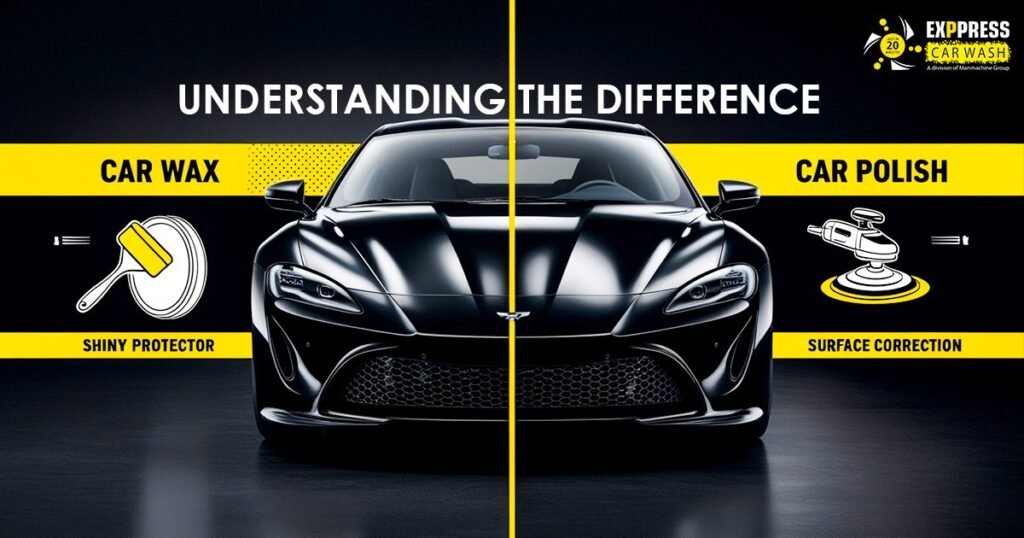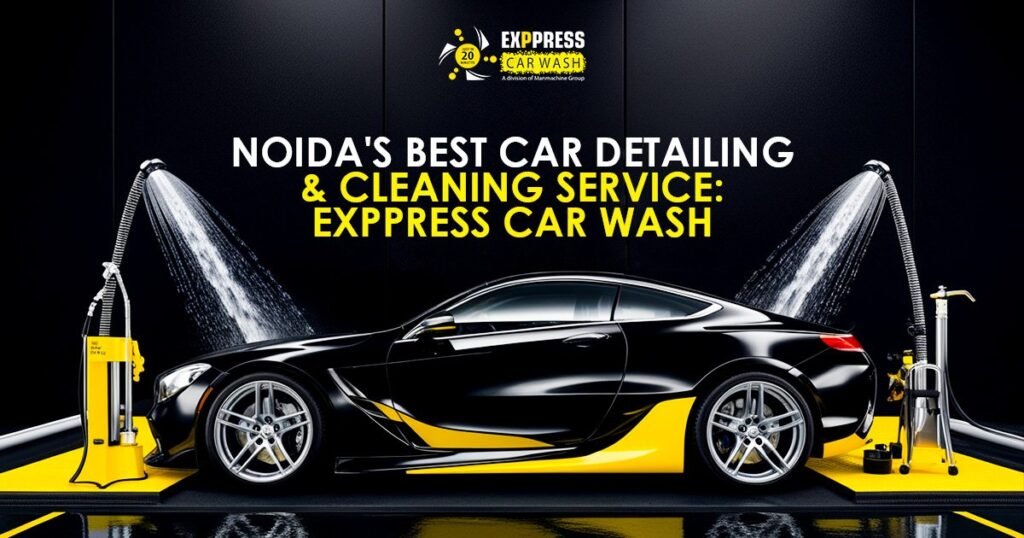Car Detailing Tips: Why Wash Your Car After Rain

Rainwater isn’t as pure as it seems. As it falls through the atmosphere, it can pick up various contaminants such as dust, pollen, tree sap, bird droppings, and pollutants from the air. When the rainwater evaporates, these contaminants can be left behind on your car’s surface, potentially causing damage over time.
A car detailing franchise allows entrepreneurs to enter the automotive service industry with the support of a proven brand. Franchisees benefit from expert training, access to high-quality products, and operational support, enabling them to offer premium services like paint correction and interior restoration. This business model reduces startup risks and helps build customer loyalty, making it an ideal choice for those passionate about vehicle care.
In areas with high pollution levels, rainwater can become slightly acidic due to the presence of pollutants like sulfur dioxide and nitrogen oxides. Acid rain can damage your car’s paint and clear coat over time if left to dry on the surface.
In this blog, brought to you by Exppress Car Wash, we will explore the reasons why car cleaning and washing after rain is crucial for preserving its paint quality, preventing water spots, avoiding corrosion, maintaining visibility and safety, and enhancing its overall aesthetics.
Why it’s important to wash your car after it rains?
Maintaining the appearance and longevity of your car is a responsibility that comes with car ownership. While many car owners might think that the rain itself acts as a natural car wash, there are important reasons why a car wash after it rains is a crucial step in car maintenance.
Rainwater, although seemingly clean, can carry hidden contaminants and pose potential risks to your vehicle’s exterior.
Given below are some of the reasons why post-rain car cleaning is not just a matter of aesthetics but also a means of protecting your vehicle’s paint, finish, and overall condition.
- Preserving Paint Quality: Rainwater Residue and Chemicals
When raindrops fall on your car’s surface, they might carry dust, pollen, bird droppings, and other pollutants along with them. As rainwater evaporates, these contaminants are left behind, leading to unsightly residues. Additionally, rainwater can contain acidic elements due to air pollution, which can gradually erode your car’s paint if left unchecked. Car Wash promptly after rain can prevent these pollutants from causing long-term damage to the paint, preserving its quality and shine.
- Preventing Water Spots: The Drying Effect of Rain on Surfaces
Have you ever noticed those frustrating water spots on your car’s exterior after rain? These spots occur when rainwater evaporates and leaves behind minerals and impurities present in the water. As the water dries, these minerals can create spots that mar the finish of your car’s paint. Regular car wash process after rain helps remove these water spots, preventing them from becoming stubborn stains that require more intensive cleaning methods later.
- Avoiding Corrosion: Rainwater and Metal Components
Rainwater isn’t just composed of H2O; it can contain trace amounts of various chemicals and pollutants. When rainwater comes into contact with your car’s metal components, such as the chassis and undercarriage, it can promote corrosion over time. This is especially problematic if you live in an area where road salt is used, as saltwater accelerates the rusting process. By car wash after rain, you can wash away these corrosive elements and inhibit the development of rust.
- Maintaining Visibility and Safety: Clearing Rain-Induced Grime
Rainwater mixed with dust, dirt, and other pollutants can create a layer of grime on your car’s windshield, windows, and mirrors. This accumulation can significantly compromise visibility while driving, posing a safety hazard. Car Cleaning after rain ensures that your windows and mirrors remain clean and clear, allowing for optimal visibility and safer driving conditions.
- Enhancing Aesthetics: A Gleaming Finish After Rainfall
A freshly washed car gleaming under the sunlight is a sight to behold. Car cleaning after rain isn’t just about practicality; it’s also about aesthetics. Rainwater and its associated contaminants can dull your car’s appearance, making it look unkempt. By car cleaning you restore its shine, making it stand out and look like new again. This can boost your pride of ownership and enhance your overall driving experience.
Conclusion
As a responsible car owner, taking care of your vehicle goes beyond just regular maintenance – it involves timely actions like Car cleaning and Car Detailing. The benefits are clear: preserving paint quality, preventing water spots, avoiding corrosion, maintaining visibility and safety, and enhancing aesthetics. Each time you do your car wash after rain, you’re not just cleaning away dirt; you’re extending the life and beauty of your cherished vehicle.
When it comes to top-notch car care, Exppress Car Wash is your trusted partner. Our commitment to maintaining the pristine condition of your car is unwavering. Remember, the next time raindrops fall and dot your car’s surface, don’t hesitate to give it the care it deserves by availing of the services of Exppress Car Wash. Your car will thank you with a sparkling finish that turns heads on the road.
Contact Us at Exppress Car Wash for Your Car Wash and Car Detailing
We provide professional and reliable car wash and car detailing services to our customers All over India. Visit our website or call us at +91-80-100-44000 to get your car care service today!
Frequently Asked Questions (FAQs) — Car Detailing Tips: Why Wash Your Car After Rain
Ques 1. Why should I wash my car after it rains?
Ans 1. Washing your car after it rains might not be the first thing on your mind, but it’s a practice with multiple benefits. Rainwater isn’t as innocent as it seems – it can contain dust, pollen, bird droppings, and other pollutants that settle on your car’s surface. As rainwater evaporates, these contaminants are left behind, leading to unsightly residues. Moreover, rainwater can carry acidic elements resulting from air pollution, which can gradually erode your car’s paint. Washing your car promptly after rain helps remove these pollutants, preserving the quality and shine of your paint. This simple post-rain ritual can significantly extend the lifespan of your vehicle’s exterior and maintain its visual appeal.
- Rainwater carries contaminants that settle on your car.
- Contaminants left behind as rainwater evaporates can damage the paint.
- Acidic elements from air pollution in rainwater can erode the paint.
- Washing your car after rain removes pollutants and preserves paint quality.
Ques 2. Can I wash my car by hand or should I use an automatic car wash?
Ans 2. When it comes to washing your car, you have two main options: hand washing or using an automatic car wash. Each method has its pros and cons. Hand washing allows for precise cleaning, especially in difficult-to-reach areas, and gives you control over the pressure applied. However, it can be time-consuming and physically demanding. On the other hand, automatic car washes are convenient and save time, but they might not clean every nook and cranny as thoroughly, and the brushes used could potentially cause minor scratches. Regardless of your choice, using gentle techniques, avoiding abrasive materials, and using high-quality car wash products are essential. Reputable car wash centers like Exppress Car Wash employ trained professionals who use the right methods and products, ensuring your car is cleaned effectively and safely.
- Hand washing offers precise cleaning and pressure control.
- Automatic car washes are convenient but might not clean all areas thoroughly.
- Both methods have pros and cons.
- Use gentle techniques, avoid abrasives, and choose quality products.
Ques 3. How does rain affect my car’s metal parts?
Ans 3. Rainwater’s seemingly harmless nature can have adverse effects on your car’s metal components. Rainwater isn’t pure; it can contain trace amounts of chemicals and pollutants from the air. When rainwater comes into contact with metal parts like the chassis and undercarriage, it can promote corrosion or rusting over time. This effect is amplified in regions where road salt is used to combat ice, as saltwater accelerates rust formation. Washing your car after rain helps remove these corrosive elements, preventing rust development. Regular maintenance, including car wash and occasional waxing, plays a pivotal role in preserving the structural integrity of your car’s metal components and prolonging their lifespan.
- Rainwater contains chemicals and pollutants that affect the exterior surface.
- Rainwater can promote corrosion and rust on metal parts.
- Regions with road salt usage experience accelerated rust formation.
- Car Cleaning after rain removes corrosive elements and prevents rust.
- Regular maintenance, including car wash and waxing, preserves metal components.
Incorporating the practice of car wash after rain into your car care routine might seem like a small step, but it can have a subst


